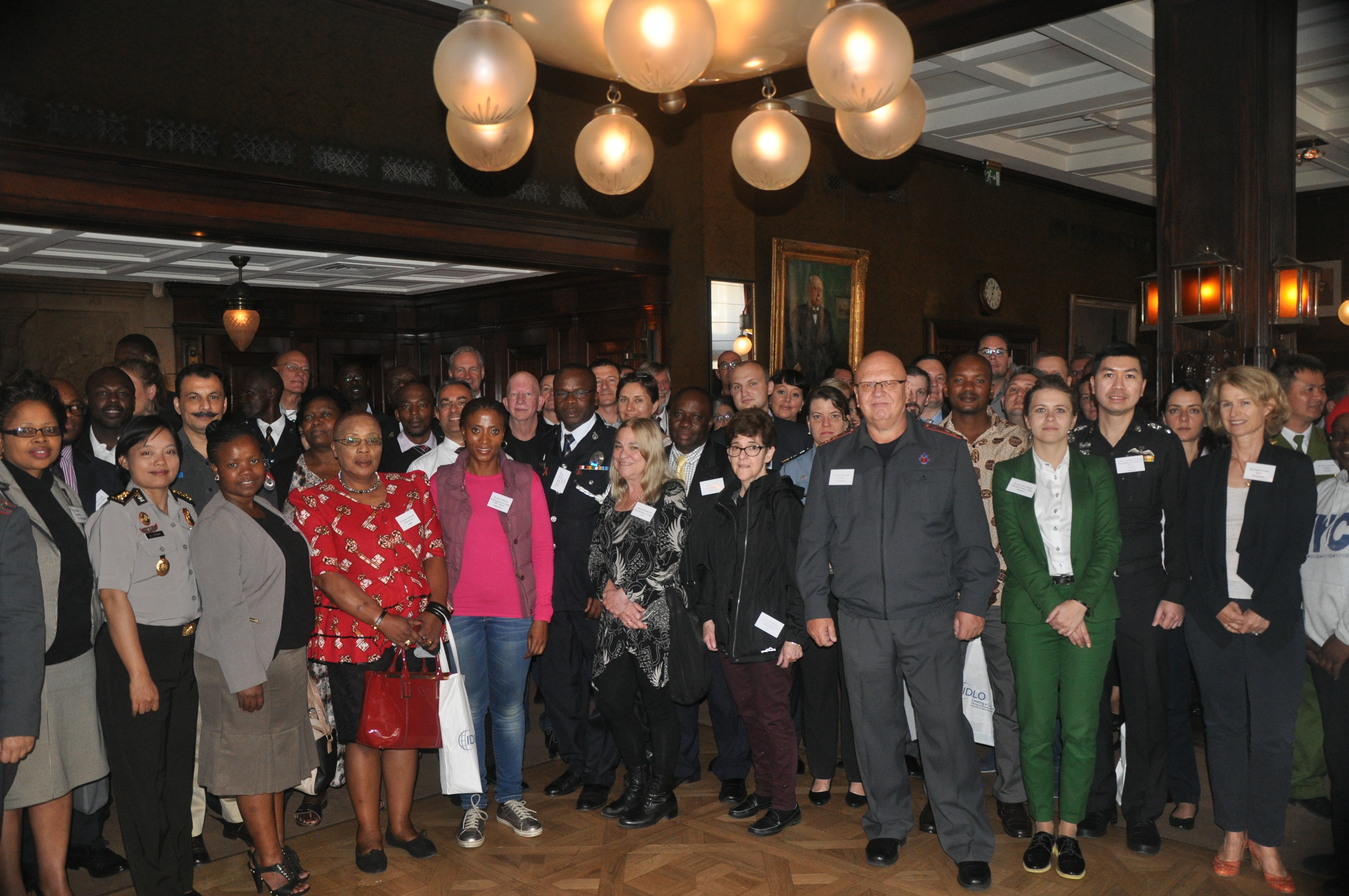An October 4 Police and HIV Consultation in Amsterdam issued a fervent call to promote partnerships between all those at the intersection between law enforcement and HIV – police and other law enforcement agencies, people living with and affected by HIV, and those providing care, treatment and support.
The appeal came in the form of the Amsterdam Declaration on Police Partnerships for Harm Reduction, which was developed by delegates to the Consultation jointly organized by IDLO, the Centre for Law Enforcement and Public Health (CLEPH) and the University of London’s Birkbeck School of Law.
Nick Crofts, IDLO’s Senior Expert in Law Enforcement and Public Health and Executive Director of the Law Enforcement and HIV Network (LEAHN), described the Declaration as ‘the brainchild of people from all sectors engaged in the global HIV response’.
Speaking at the public launch of the Declaration on October 6, Prof. Crofts stressed the practical outcomes that all participants were working towards: “The ultimate aim here is to facilitate HIV prevention, eliminate HIV-related stigma and discrimination and thus help turn around the epidemic in key affected populations.”
At the Consultation itself, speakers illustrated the need for identifying and eliminating policing practices that hinder the delivery of HIV services. Inspector Wilson Edung Lomali of Kenya set the tone by describing the negative effects of aggressive policing practices: “Drug users fear the police and run away instead of seeking treatment. That leads to aggression, withdrawal… When police enforce a law that’s supposed to protect everyone, drug users can end up in prison, where they could ultimately die the cells,” he said, pointing to the challenges that the law presents.
Former police officer and LEAHN’s Australia coordinator Greg Denham, argued that “Policing does not occur in a vacuum”. Going on to describe the pressures police face, he said, “We must be mindful that the community supports our work but police are public servants, and have to respond to government demands.”
Thai Police Lieutenant Colonel Krisanaphong Poothakool’s description of ’arrest quotas’ set under previous governments exemplify the kind of demands made of police in many countries. Lt. Col. Phoothakool lectures to new recruits at the Royal Police Cadet Academy on harm reduction and is also the country focal point for LEAHN.
Pye Jakobsson, President of the Global Network of Sex Work Projects, lamented what she described as a worsening of relations between the police and sex workers in her native Sweden. “No real good relationship is possible if sex work is not decriminalized,” Ms. Jakobsson asserted.
In the meantime, with support from their leadership, police can find creative ways to change attitudes and policing approaches. To prove this point, Chief Superintendent Jones M. Blantari of Ghana has made a habit of whipping out a condom from his pocket. The police officer explained that in his country, the possession of a condom has frequently been used as evidence for arrest. That, he said, drives sex workers underground and they do not carry condoms. “If I, as a police officer, carry a condom, I will not have the moral authority to arrest anyone else who is carrying one,” he said, smiling broadly.
It is this sort of exchange of ideas around best practice and harm reduction that the organizers hoped to encourage at the Consultation, in order to strengthen the collective effort towards an improved global HIV response.
Supported by AIDS Foundation East West, AIDSfonds, CoC Netherlands, UNAIDS, UNDP, UNFPA, Open Society Foundations, UNODC and WHO, the Consultation was organized in conjunction with the 2nd Law Enforcement and Public Health Conference.



